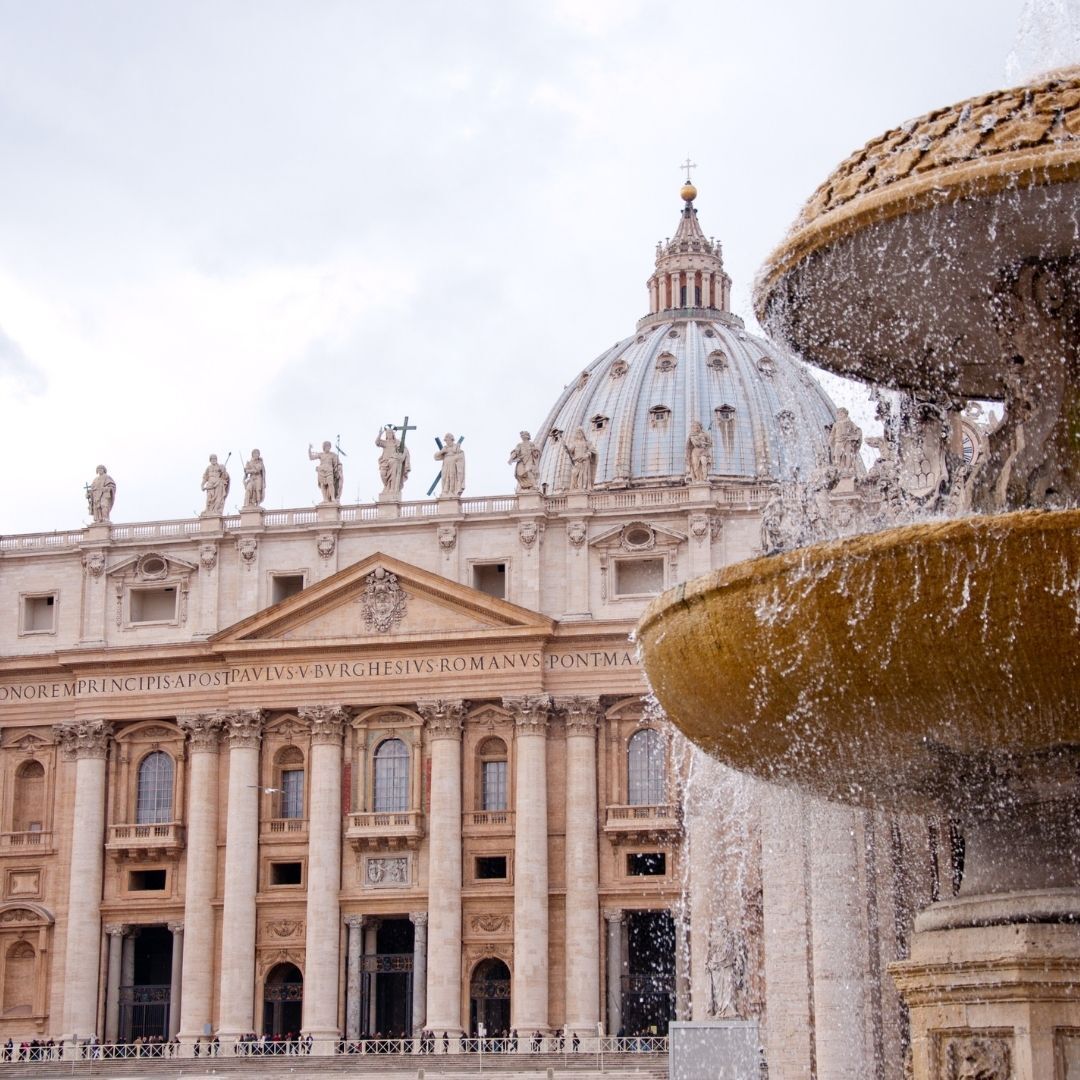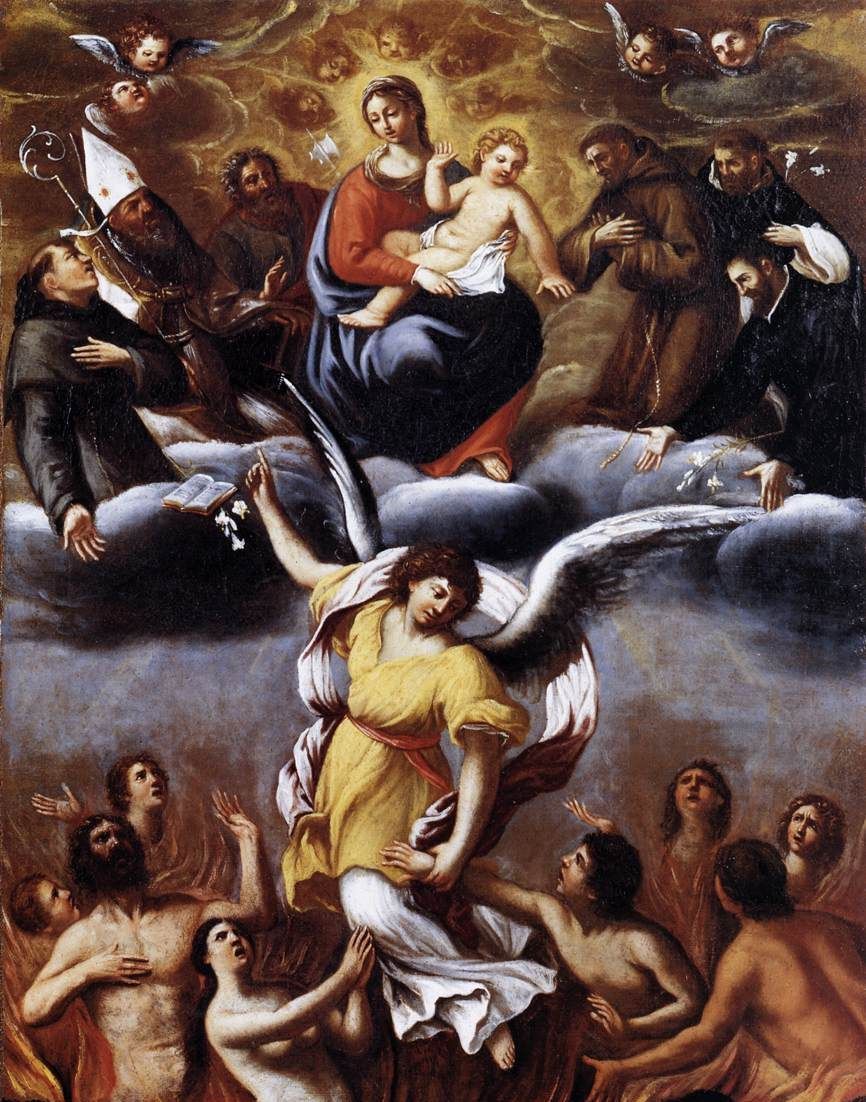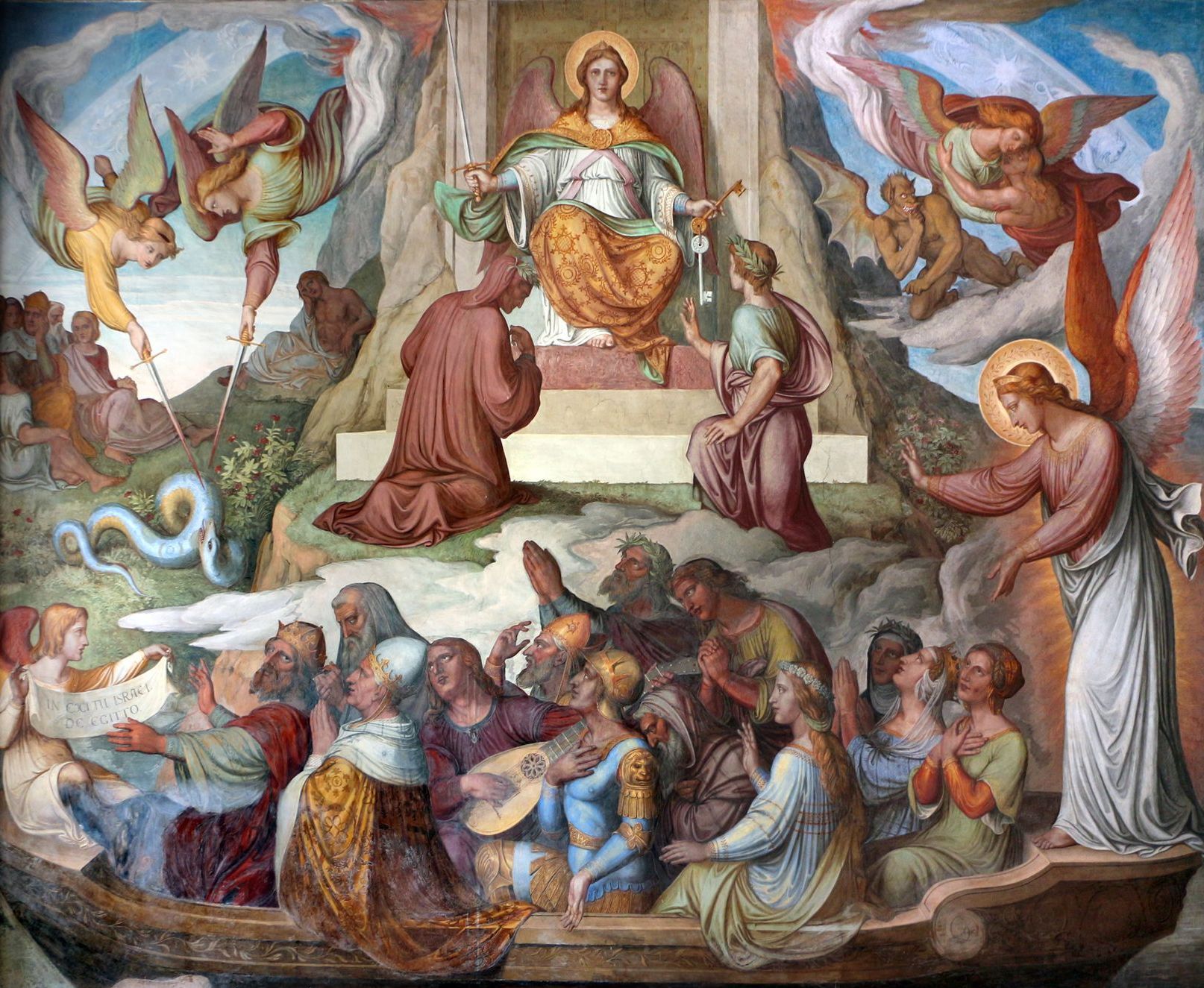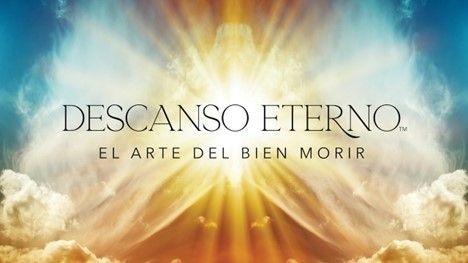Purgatory
MESSAGE OF HIS HOLINESS POPE FRANCIS to PRAY FOR THE LIVING AND THE DEAD (November 30, 2016)
Praying for the dead is, first and foremost, a sign of appreciation for the witness they have left us and the good that they have done. It is giving thanks to the Lord for having given them to us and for their love and their friendship. The Church prays for the deceased in a particular way during Holy Mass. The priest states: “Be mindful, O Lord, of thy servants who are gone before us with the sign of faith, and rest in sleep of peace. To these, O Lord, and to all that sleep in Christ, grant we beseech thee a place of refreshment, light and peace” (Roman Canon). It is a simple, effective, meaningful remembrance, because it entrusts our loved ones to God’s mercy. We pray with Christian hope that they may be with him in Paradise, as we wait to be together again in that mystery of love which we do not comprehend, but which we know to be true because it is a promise that Jesus made. We will all rise again and we will all be forever with Jesus, with Him.
Remembering the faithful departed must not cause us to forget to also pray for the living, who together with us face the trials of life each day. The need for this prayer is even more evident if we place it in the light of the profession of faith which states: “I believe in the Communion of Saints”. It is the mystery which expresses the beauty of the mercy that Jesus revealed to us. The Communion of Saints, indeed, indicates that we are all immersed in God’s life and live in his love. All of us, living and dead, are in communion, that is, as a union; united in the community of those who have received Baptism, and of those who are nourished by the Body of Christ and form part of the great family of God. We are all the same family, united. For this reason we pray for each other.
To read the full message, click here (En).
MENSAJE DE SU SANTIDAD EL PAPA FRANCISCO para ORAR POR LOS VIVOS Y LOS MUERTOS
(30 de noviembre de 2016)
Rogar por los difuntos es, sobre todo, una muestra de agradecimiento por el testimonio que han dejado y el bien que han hecho. Es un agradecimiento al Señor por habérnoslos donado y por su amor y su amistad. La Iglesia ruega por los difuntos de manera particular durante la Santa Misa. Dice el sacerdote: «Acuérdate, Señor, de tus hijos, que nos han precedido con el signo de la fe y duermen ya el sueño de la paz. A ellos, Señor, y a cuantos descansan en Cristo, concédeles el lugar del consuelo, de la luz y de la paz» (Canon romano). Un recuerdo simple, eficaz, lleno de significado, porque encomienda a nuestros seres queridos a la misericordia de Dios. Oremos con esperanza cristiana para que estén con Él en el paraíso, en la espera de encontrarnos juntos en ese misterio de amor que no comprendemos, pero que sabemos que es verdadero porque es una promesa que Jesús hizo. Todos resucitaremos y todos permaneceremos por siempre con Jesús, con Él.
El recuerdo de los fieles difuntos no debe hacernos olvidar también rezar por los vivos, que junto a nosotros se enfrentan las pruebas de la vida cada día. La necesidad de esta oración es todavía más evidente si la enfocamos desde la profesión de fe que dice: «Creo en la comunión de los santos». Es el misterio que expresa la belleza de la misericordia que Jesús nos ha revelado. La comunión de los santos, precisamente, indica que todos estamos inmersos en la vida de Dios y vivimos en su amor. Todos, vivos y difuntos, estamos en la comunión, es decir, como una unión; unidos en la comunidad de cuantos han recibido el Bautismo, y de los que se han nutrido del Cuerpo de Cristo y forman parte de la gran familia de Dios. Todos somos de la misma familia, unidos. Y por eso rezamos los unos por los otros.
Para leer el mensaje completo, haga clic aquí (Sp).
The Final Purification, or Purgatory
1031. "The Church gives the name Purgatory to this final purification of the elect, which is entirely different from the punishment of the damned. [Cf. Council of Florence (1439): DS 1304; Council of Trent (1563): DS 1820; (1547): 1580; see also Benedict XII, Benedictus Deus (1336): DS 1000.] The Church formulated her doctrine of faith on Purgatory especially at the Councils of Florence and Trent. The tradition of the Church, by reference to certain texts of Scripture, speaks of a cleansing fire. [Cf. 1 Cor 3:15; 1 Pet 1:7.] As for certain lesser faults, we must believe that, before the Final Judgment, there is a purifying fire. He who is truth says that whoever utters blasphemy against the Holy Spirit will be pardoned neither in this age nor in the age to come. From this sentence we understand that certain offenses can be forgiven in this age, but certain others in the age to come. [St. Gregory the Great, Dial. 4, 39: PL 77, 396; cf. Mt 12:32-36.]"
(Catechism of the Catholic Church)
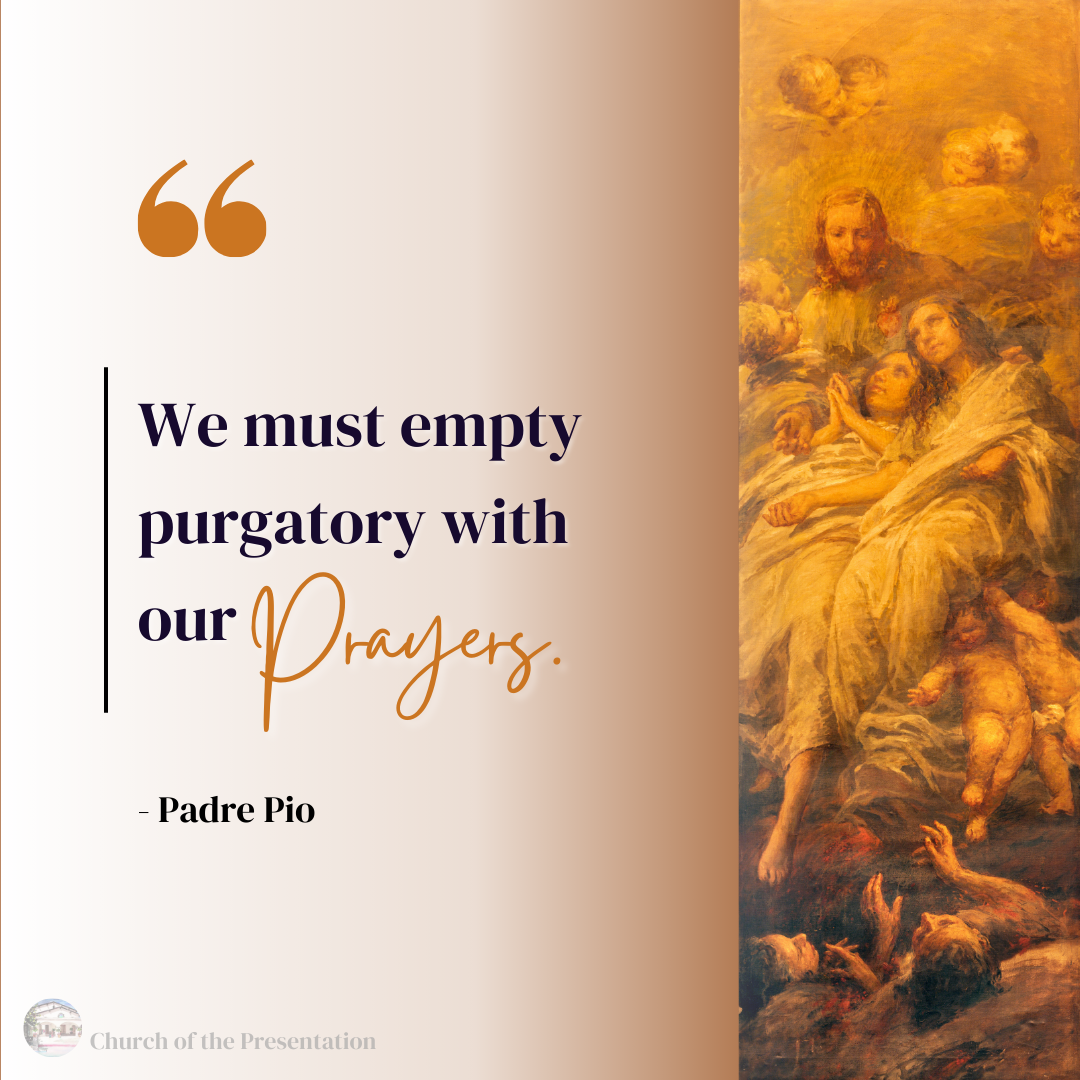
The Punishments of Sin
1472. "To understand this doctrine and practice of the Church, it is necessary to understand that sin has a double consequence. Grave sin deprives us of communion with God and therefore makes us incapable of eternal life, the privation of which is called the 'eternal punishment' of sin. On the other hand every sin, even venial, entails an unhealthy attachment to creatures, which must be purified either here on earth, or after death in the state called Purgatory. This purification frees one from what is called the 'temporal punishment' of sin. These two punishments must not be conceived of as a kind of vengeance inflicted by God from without, but as following from the very nature of sin. A conversion which proceeds from a fervent charity can attain the complete purification of the sinner in such a way that no punishment would remain. [Cf. Council of Trent (1551): DS 1712-1713; (1563): 1820.]" (Catechism of the Catholic Church)
https://www.vatican.va/archive/ccc/index.htm
Purgatory - RESOURCES IN ENGLISH
FORMED
Not yet on FORMED?
- Visit http://signup.formed.org/.
- Enter our parish’s zip code or name.
- Enter your name and email.
May God bless you during this special season!
The Last Things
The Last Things
For each and every person in this world, through all the trials and uncertainties, there is one thing we can all be certain about: we will die. Despite this reality, many people spend their lives trying to ignore or avoid contemplating their own mortality. And yet, without approaching each day of our lives with this reality in mind, we are unable to fully grow and mature in the spiritual life and become the saints we are called to be.
This film presents the reality of death and what will follow for every person: first the particular Judgment before God, then Heaven or Hell as our destination for all eternity. The Catholic teaching on Purgatory is also explained, giving examples from the Scriptures and philosophy.
DAILY REFLECTIONS
ETERNAL REST: THE ART OF DYING WELL
We all have very real questions about death. What happens when we die? What does Scripture teach about death? How do we prepare for the life to come? Explore the mystery of death, dying, and everlasting life through Eternal Rest, a new offering of the Augustine Institute.
Eternal Rest examines the origin of death, the afterlife, and the powerful reality around the sacrament that ushers us into eternal life. Eternal Rest presents the Catholic Church’s teaching about death and God’s response to it with wisdom and truth, gentleness and compassion, so we can think about and prepare for death in the light of Jesus Christ, the Author of life.
PRESENCE: THE MYSTERY OF THE EUCHARIST
Symbolon Session 10: The Last Things: What Happens After We Die?
What does the Church really teach about death, judgment, Heaven, and Hell? It's time to separate the myths from the reality.
The Last Things: What Happens after We Die?
Deep in the human heart is the question: What happens after we die? Jesus reveals the Last Things—death, judgement, Heaven, and Hell—and what we need to do now to prepare for eternity.
La purificación final o purgatorio
1031. La Iglesia llama purgatorio a esta purificación final de los elegidos que es completamente distinta del castigo de los condenados. La Iglesia ha formulado la doctrina de la fe relativa al purgatorio sobre todo en los Concilios de Florencia (cf. DS 1304) y de Trento (cf. DS 1820; 1580). La tradición de la Iglesia, haciendo referencia a ciertos textos de la Escritura (por ejemplo 1 Co 3, 15; 1 P 1, 7) habla de un fuego purificador:
«Respecto a ciertas faltas ligeras, es necesario creer que, antes del juicio, existe un fuego purificador, según lo que afirma Aquel que es la Verdad, al decir que si alguno ha pronunciado una blasfemia contra el Espíritu Santo, esto no le será perdonado ni en este siglo, ni en el futuro (Mt 12, 31). En esta frase podemos entender que algunas faltas pueden ser perdonadas en este siglo, pero otras en el siglo futuro (San Gregorio Magno, Dialogi 4, 41, 3).
(Catecismo de la Iglesia Catolica)
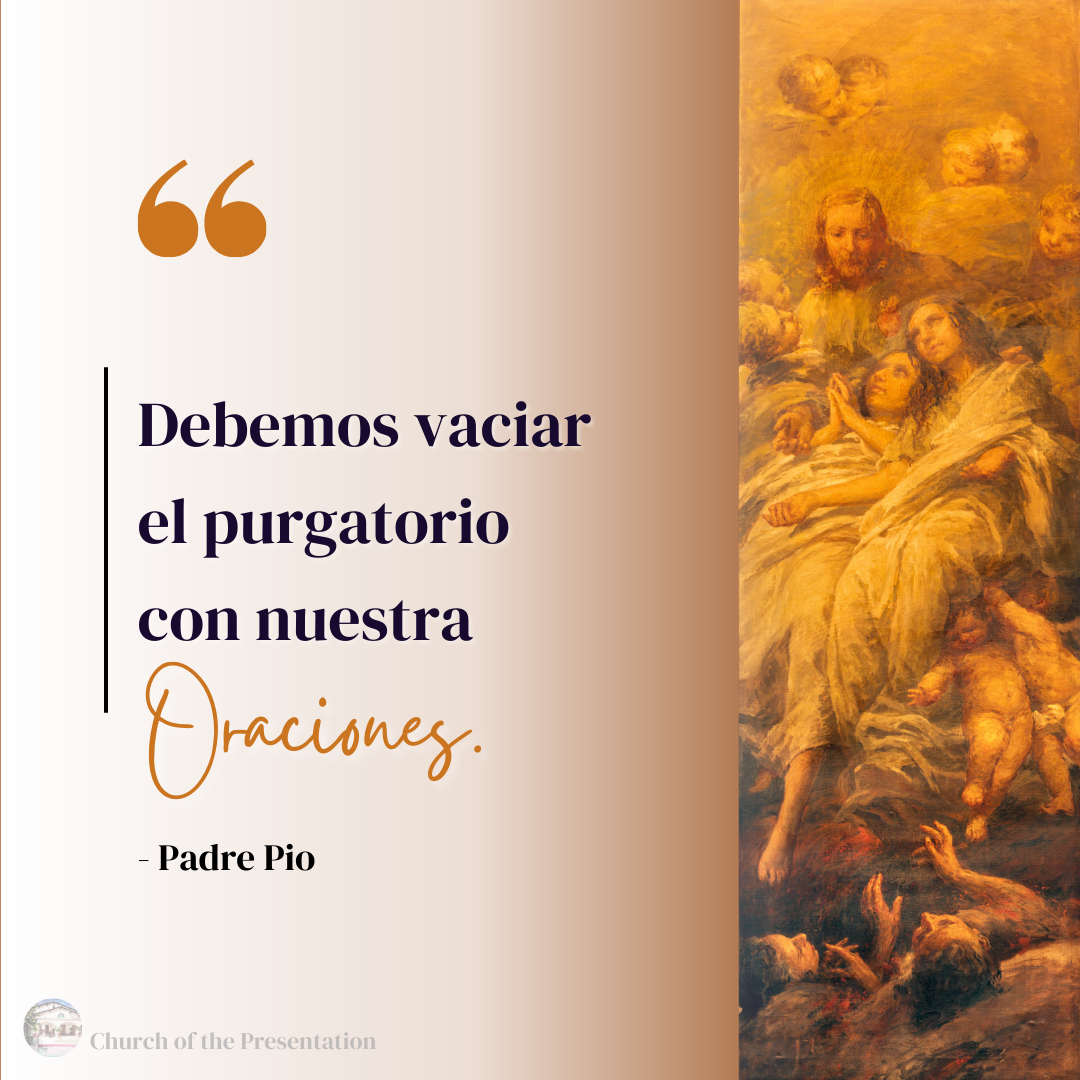
Las penas del pecado
1472. Para entender esta doctrina y esta práctica de la Iglesia es preciso recordar que el pecado tiene una doble consecuencia. El pecado grave nos priva de la comunión con Dios y por ello nos hace incapaces de la vida eterna, cuya privación se llama la "pena eterna" del pecado. Por otra parte, todo pecado, incluso venial, entraña apego desordenado a las criaturas que es necesario purificar, sea aquí abajo, sea después de la muerte, en el estado que se llama Purgatorio. Esta purificación libera de lo que se llama la "pena temporal" del pecado. Estas dos penas no deben ser concebidas como una especie de venganza, infligida por Dios desde el exterior, sino como algo que brota de la naturaleza misma del pecado. Una conversión que procede de una ferviente caridad puede llegar a la total purificación del pecador, de modo que no subsistiría ninguna pena (cf Concilio de Trento: DS 1712-13; 1820).
(Catecismo de la Iglesia Catolica)
https://www.vatican.va/archive/catechism_sp/index_sp.html
El Purgatorio - RECURSOS EN ESPAÑOL
FORMED
¡Disfruta de FORMED de manera fácil y gratuita!
- Ingresa a http://signup.formed.org/.
- Selecciona tu parroquia
- Inscríbete usando tu nombre y correo electrónico
- Revisa tu correo y sigue la liga para que comiences a usar FORMED
¡Que Dios los bendiga durante esta temporada especial!
Symbolon: La explicación de la fe Católica (Español)
Las últimas cuatro cosas ¿Qué pasa después de nuestra muerte?
¿Qué es lo que realmente enseña la Iglesia sobre la muerte, el juicio, el cielo y el infierno? Es tiempo de separar los mitos de la realidad.
Comenzamos nuestro camino hacia el corazón de la fe Católica como peregrinos, explorando la realidad de Dios, quién es, y cómo se manifiesta a nosotros en la forma más significativa posible.
¿Qué pasa después de que morimos?
Los domingos en la misa, concluimos el credo diciendo “Espero la resurrección de los muertos y la vida del mundo futuro.” ¿Pero qué es la resurrección? ¿Y cuál es esta vida del mundo futuro?
Jesús dijo que al final de los tiempos, a todos se nos dará un nuevo cuerpo, y seremos levantados de entre los muertos. Esto aplica a todas las personas, aquellos que pasarán una eternidad con Dios, y los que estarán eternamente separados de él. Y a aquellos que todavía no están listos para ir al cielo, Dios les da el purgatorio.

